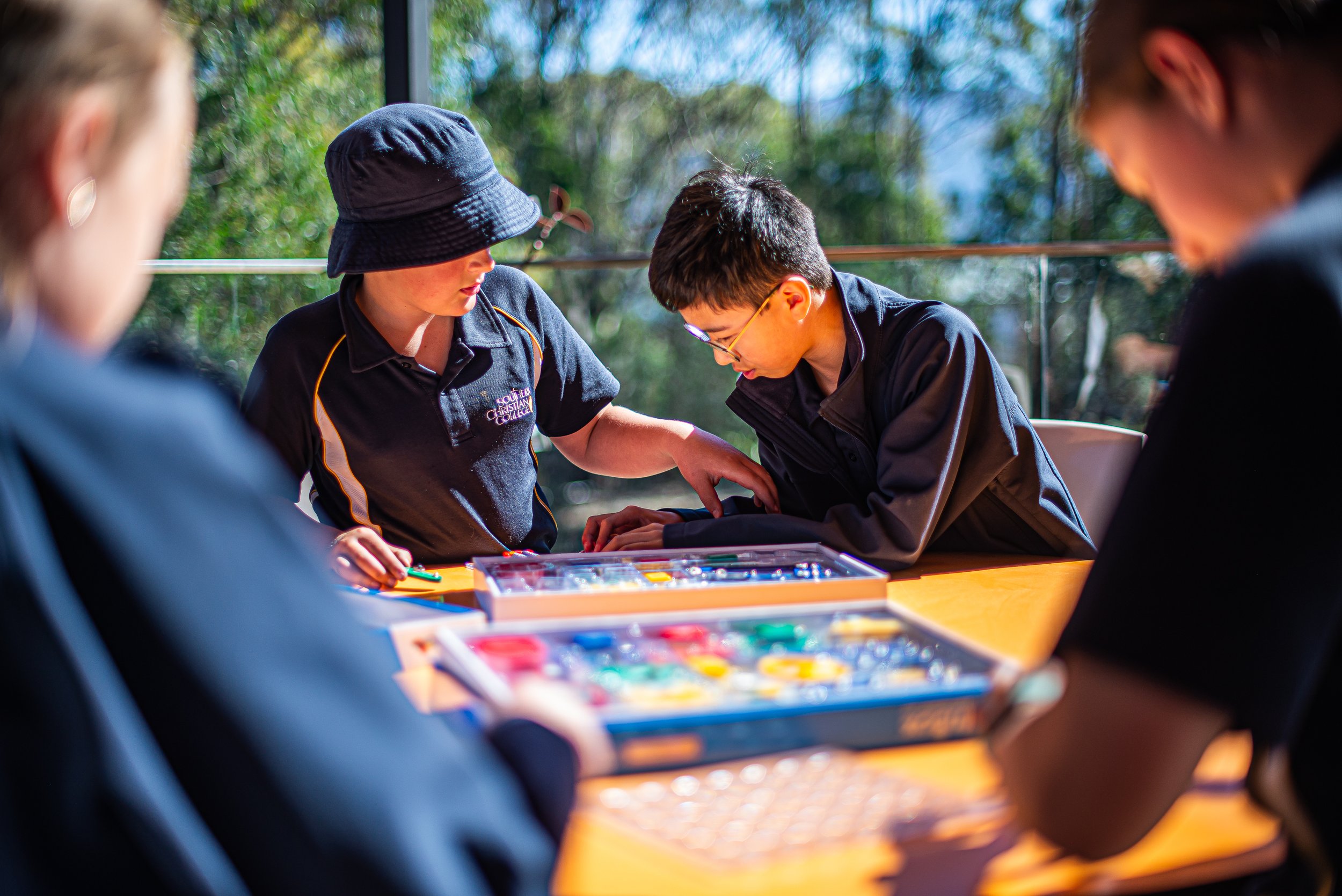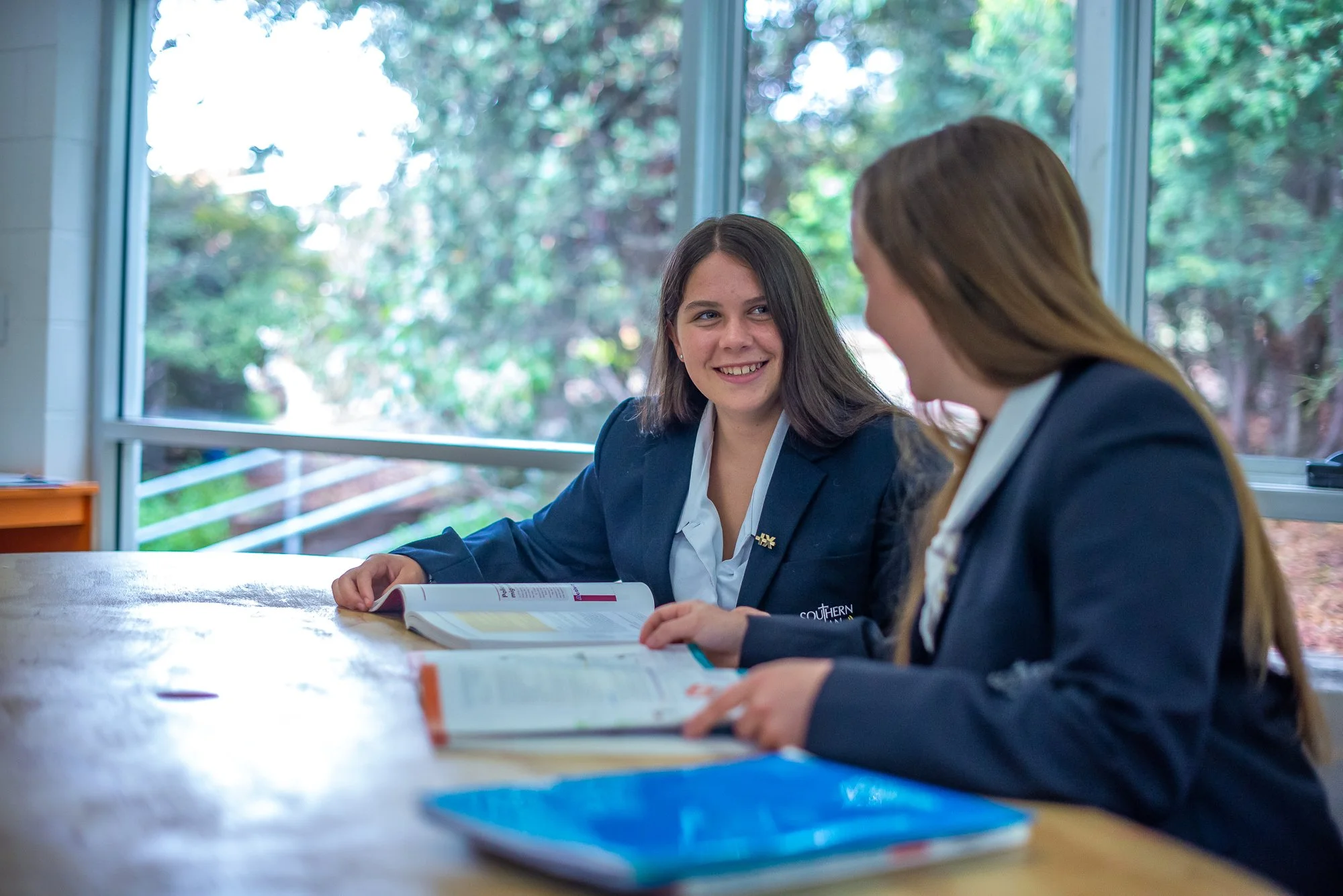
Christ-centred foundations.

Inspiring inquisitive minds.

Community-minded learning.

Kindergarten 2026 enrolments open.
Welcome to Southern
Christian College.
An Early Learning to Year 12 School providing a Christ-centred quality education that inspires, challenges, encourages and equips young people for life at school and beyond.
Excellence in Christian learning.
Southern Christian College is a Christian, faith-based organisation serving the community. The College aims to provide a holistic education that develops a community of learners who are balanced spiritually, intellectually, physically, emotionally, creatively and socially.
The College aims to develop lifelong independent and cooperative learners through a Christ-centred quality education that inspires and equips young people for life. The College promotes an understanding of, and appreciation for, the teachings of Christ through the Scriptures and His life being foundational to our relationships and practice.
This understanding is demonstrated through:
Partnering with parents and community in the education of children.
Expressing faith as caring and respectful members of a global community, acting in ways that promote social justice and international mindedness.
Celebrating the knowledge, goodness and grace of God in creation and salvation.
Learning at Southern Christian College

...providing a holistic education that develops a community of learners who are balanced spiritually, intellectually, physically, emotionally, creatively and socially.
Southern Christian College acknowledges that our loving God, the creator of all things, first entrusted the land on which we are placed, to the Muwinina people of Nipaluna who have walked and cared for it since before recorded time.
We thank God for the land's Traditional Custodians and pay our respects to Elders past, present, and emerging. On this land they taught their children their beliefs, knowledge and culture and we honour them as we seek to do the same.
We pray that God will bring reconciliation in this nation, and unite us all in the knowledge, love, and grace of His son, Jesus Christ.








